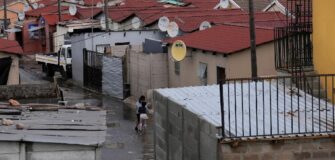Share
After a political crisis with many twists and turns, Senegalese voters go to the polls on Sunday to choose their new president. Seventeen contenders are hoping to succeed President Macky Sall. FRANCE 24 examines the political backgrounds and main proposals of four candidates: Amadou Ba, Bassirou Diomaye Faye, Idrissa Seck and Khalifa Sall.
A fast-paced electoral campaign is coming to an end for 17 Senegalese presidential candidates. Over just two weeks, they have been striving to convince voters to support them at the polls on Sunday.
This extraordinary campaign was cut short by the political crisis that began on February 3, when Sall cancelled the election that had been scheduled for February 25. Senegalese lawmakers voted to postpone the vote to December 15, but the Constitutional Council voided the cancellation and the postponement and forced Sall to set a new date.
Sall is nearing the end of two terms (2012-2024) at the head of one of West Africa’s most stable countries. The constitution doesn’t allow him to run for a third mandate.
On March 9, two days after the council confirmed the March 24 vote, Senegal’s presidential candidates launched their campaigns. The 17 hopefuls have increased their trips and public meetings over the last few days to boost visibility and present their ideas on issues including sovereignty, civil liberties, emigration, schools, unemployment and a fishing industry crisis.
Here’s a look at the four main candidates’ key proposals:
Amadou Ba, the continuity candidate
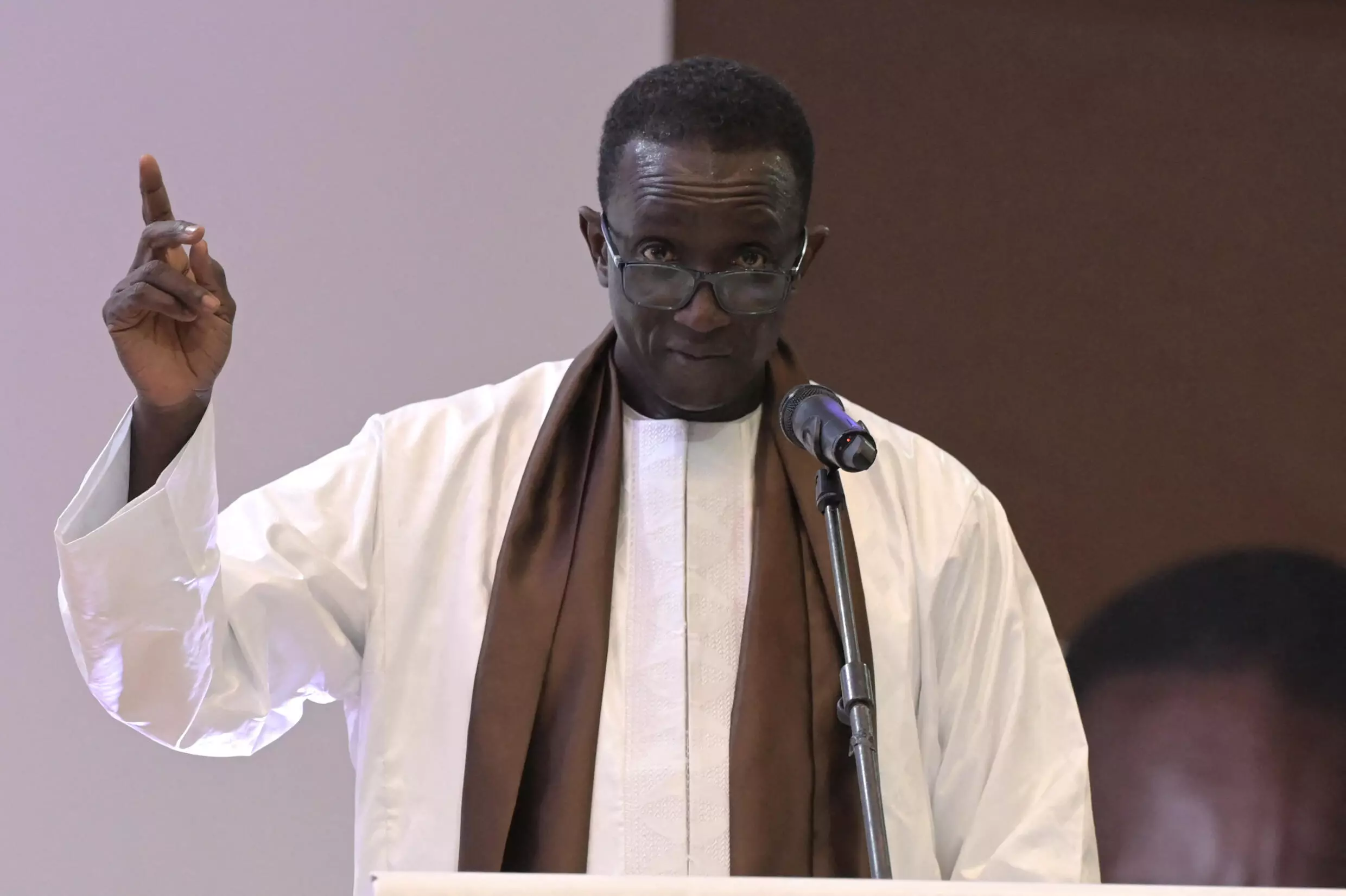
Senegalese Prime Minister Amadou Ba speaks in Dakar on December 21, 2023. © Seyllou, AFP
Prime Minister Amadou Ba, 62, is a ruling party candidate and Sall’s preferred successor. The former minister of economy and finance and then foreign affairs, Ba presents himself as a candidate for stability and the continuity of the incumbent’s economic record, while also promising a return to calm after months of political crisis.
Ba focused his campaign programme on youth employment in a country where three-quarters of the population is under 35. His key promise: to create 1 million jobs by 2028 through public/private partnerships and investment in agriculture, industry, infrastructure and renewable energies.
He also calls for updating “conventions and contracts signed by the state of Senegal in the field of natural resources”, providing a minimum financial allowance to the elderly and accelerating the construction of a national school of cultural arts and crafts.
Bassirou Diomaye Faye, the anti-system candidate
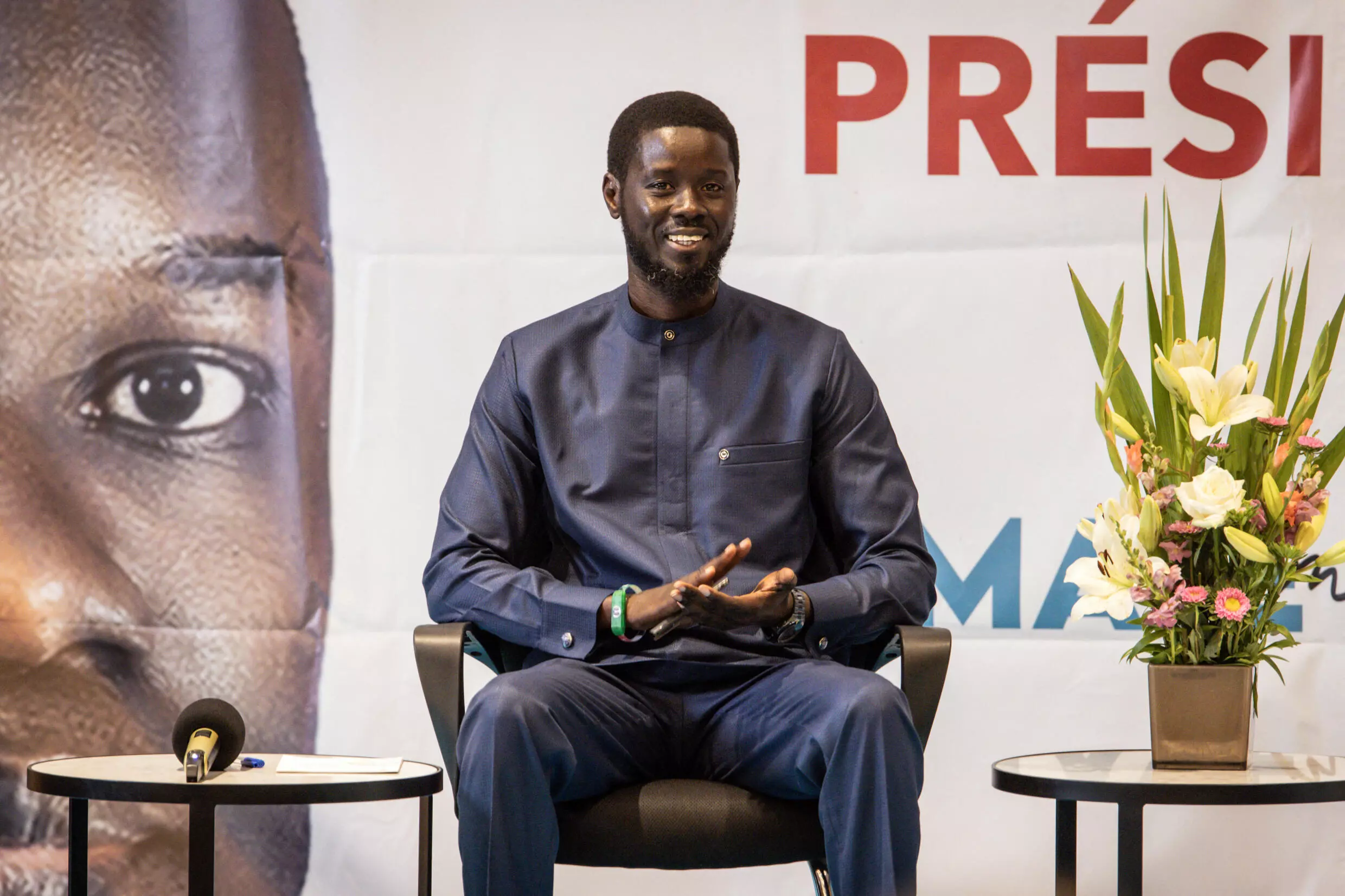
Senegalese presidential candidate Bassirou Diomaye Faye gestures during a press conference in Dakar on March 15, 2024. © John Wessels, AFP
Bassirou Diomaye Faye, 44, a replacement for opposition leader Ousmane Sonko who was excluded from the presidential race in January, has had even less time than other candidates to campaign in person. The cofounder of the opposition Pastef party, who was released from prison along with Sonko on March 14, is campaigning against the country’s political class and promises to reclaim Senegal’s “sovereignty”, a term used 18 times in his electoral platform.
To this end, Faye proposes getting rid of the CFA franc inherited from the colonial era to introduce a new currency, and to make the teaching of English widespread in a country where the official language is French. He also says he wants to renegotiate mining and hydrocarbon contracts as well as defence agreements.
The Pastef platform also aims for institutional reform with the creation of the role of vice president and safeguards to check the power of the president, including potential removal from office.
Idrissa Seck, the veteran candidate
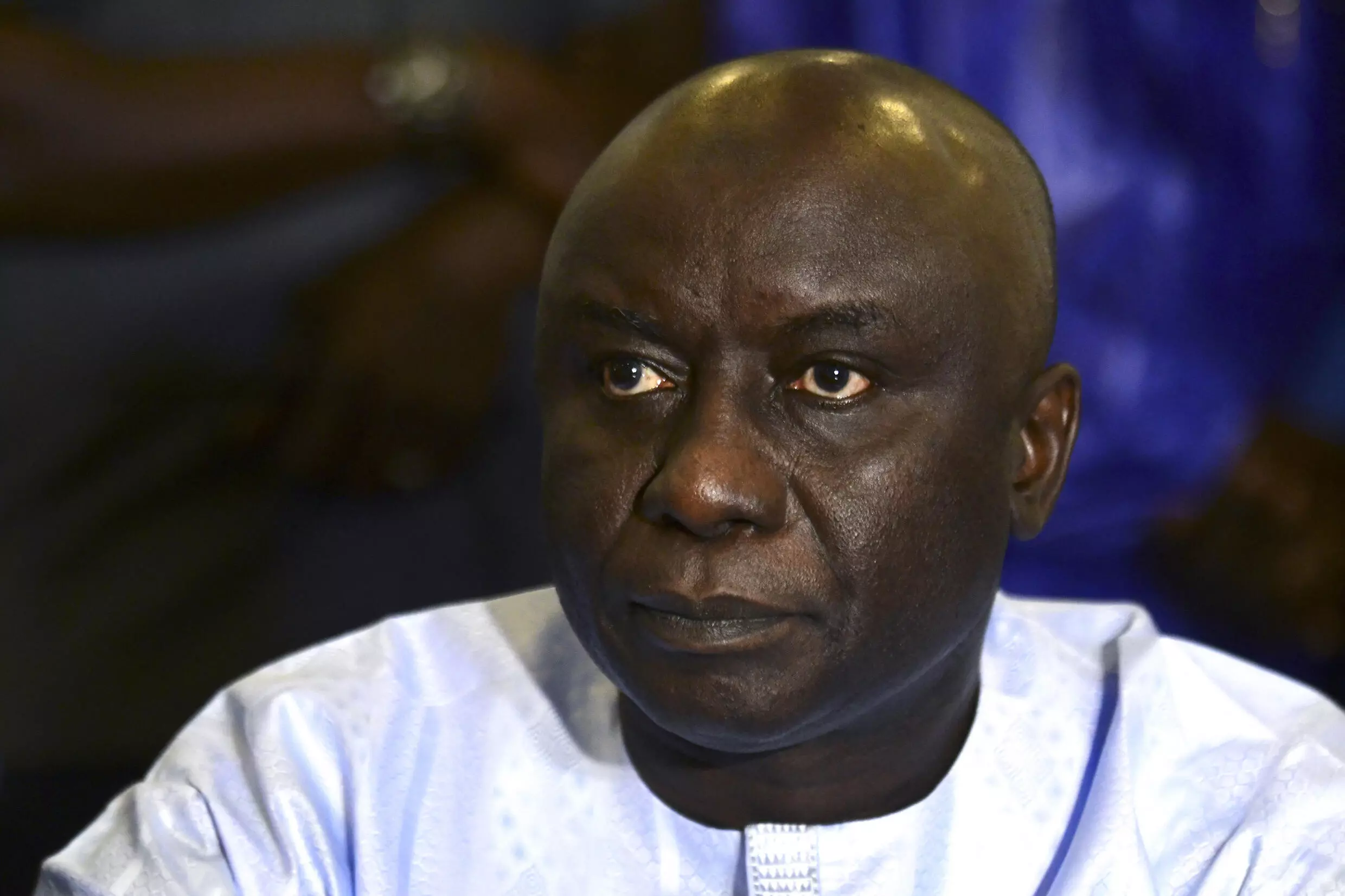
Idrissa Seck, founder of the Rewmi party, is seen during an opposition press conference in Dakar on January 15, 2019. Seck was also a candidate in Senegal’s 2019 presidential election. © Seyllou, AFP
Former prime minister Idrissa Seck, who served under ex-president Abdoulaye Wade between 2002 and 2004, is running in a fourth consecutive presidential race. The 64-year-old former Sall opponent, who long maintained the suspense surrounding his eventual candidacy, has put his political experience and knowledge of the inner workings of government to use in his bid to win over voters.
Among his signature proposals are compulsory military service, the creation of a common currency for West African countries and a fund financed by oil and gas companies to compensate for damage to the fishing industry.
The founder of Senegal’s Rewmi party also proposes to devote 60 percent of public investment to areas outside the Dakar region.
Khalifa Sall, the comeback candidate
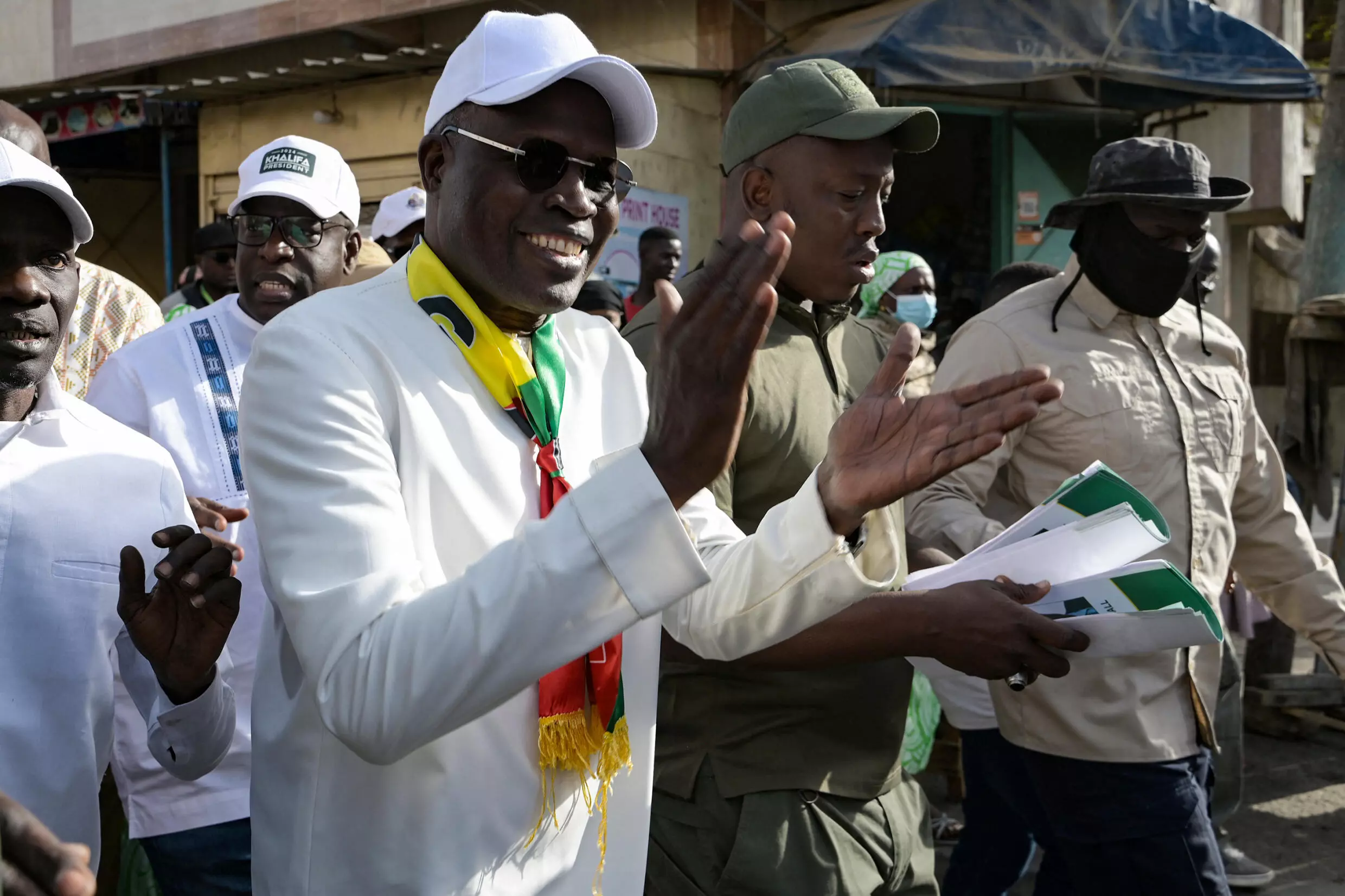
Presidential candidate Khalifa Sall greets supporters during a tour of several areas in Senegal’s capital Dakar on March 9, 2024. © Seyllou, AFP
Khalifa Sall (no relation to the outgoing president) is another Senegalese political heavyweight trying his luck in the race. Sentenced to five years in prison and a fine of 5 million CFA francs for fraud and embezzlement of public funds in 2018, the leader of the Taxawu Senegal coalition was barred from entering the 2019 presidential contest. Macky Sall’s rival has since returned to politics thanks to a presidential pardon and a law authorising the restoration of civil rights for convicted people who were amnestied following a national dialogue initiated by the government in May 2023.
In this election, the 68-year-old Sall is presenting himself as the candidate to heal a “damaged” country. The man who sees himself as the heir to Senegal’s socialist party promises to institute a citizen-initiated referendum. He also pledges to devote at least 1,000 billion CFA francs (1.5 billion euros) of the annual national budget to agriculture.
Sall’s foreign policy programme aims to “diversify and rebalance” diplomatic and economic partnerships by “strengthening (global) south-south cooperation and cooperation with emerging countries”.

